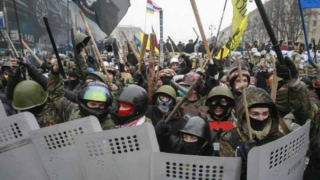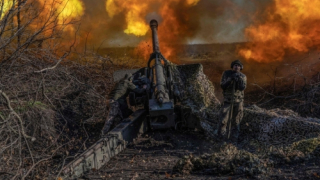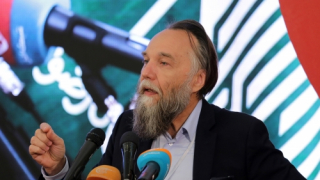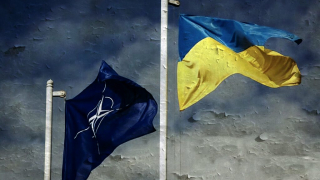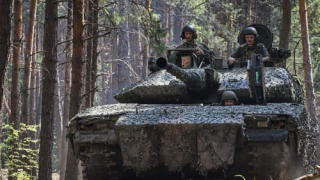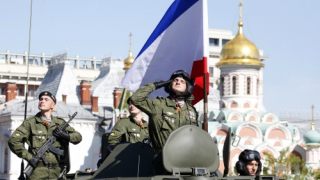Ukraine: Failed State, Fake Revolution
23.02.2015
While Ukraine or rather its remains suffers an agony caused by the redistribution of property and dismantling the remnants of sovereignty with the support of Western partners and transnational corporations, it is important to summarize some implications concerning the statehood of this geopolitical formation and political reforms during the last 10 years.
We deliberately abstract away from the topic of the Russian world and the common cultural and historical space and territorial preferences, which the soviet government during Lenin’s, Stalin’s and Khrushchev’s ruling had endowed Ukraine with.
Let's look at recent events in Ukraine from the perspective of the American political science school in consideration of current official Kyiv repeatedly highlighting its love and respect for Washington.
Sometime, American political scientists and experts introduced the concept of a failed state. In order to judge how Ukraine corresponds to this concept, let's see what happened after 1991 in the post-Soviet space. All of the Republics declared their independence and sovereignty, but it triggered the conflicts in several regions. Some republics have failed to pass the test for endurance within their territorial administrative boundaries: Moldova - due to the separation of Transnistria; Georgia because of the beginning of ethnic cleansing and repression in South Ossetia and Abkhazia; Armenia and Azerbaijan as a result of territorial disputes. Despite the civil war, Tajikistan was able to survive. Russia also managed to preserve its integrity in spite of the Chechen crisis and rising separatism movements. Both Ukraine and Belarus were in the most favorable positions, but their situations have evolved in completely different ways. After Alexander Lukashenko assuming power in Belarus, the country has opted to strengthen its sovereignty and focused on supporting an independent policy including reasonable integration processes. However, Ukraine tried to straddle. On the one hand, there were GUUAM block – a stillborn project designated to provide a sanitary cordon around Russia, the cooperation with NATO and the claim for European integration in the future. On the other hand, they wanted to keep consuming the cheap energy from Russia and spending resources of the Soviet era. Certainly, this process could not last forever, and with the Western support Ukraine started the intensive construction of so-called civil society. Huge resources of Western funds were used to legitimate the process through creating the Eastern partnership project, where Poland and Sweden played the role of the ram attack. Everything seemed to be going well - thousands of instructors and agents were working in Ukraine, nationalism was getting stronger, signs of democratization appeared. However, as soon as an internal conflict began, a safety factor immediately disappeared.
Obviously, if in a family the children run away from their parents, then it is something wrong in such a family and this issue should be solved with the help of a third party. By the way, in Western Europe the state very closely observes the family upbringing and, if necessary, sends children to orphanages or foster parents. But if a family is strong and united, even in dire straits, the idea to run away is unlikely to come to the child's mind, and until his/her legal age they will be living with their parents. This analogy can be applied to Crimea. An overwhelming majority of the citizens of the peninsula would hardly vote for independence from Ukraine and reunification with Russia whatever propaganda tricks would be used and whatever economic preferences would be promised. The same refers to the Donbass region. There are other regions where "children" would like to escape, but taking care for them is very strong and the threat of punishment is real. So, they have to hold their tongues and firmly endure the “beatings and insults".
The category of a failed state is attributed to many countries, for example, to Afghanistan. However, even Afghanistan, survived U.S. military occupation and still being torn by internal conflicts, remains united. The status of Ukraine is more similar to Somalia’s one, but with one distinction - it is in Central Europe. It is important to understand what a mistake was - the Declaration of independence in 1991 or a system error during the last period of Ukrainian history - whether since Kuchma ruling or Yushchenko’s “orange” fanaticism.
By the way, the American neoconservative Irving Kristol has made an interesting note about the difference between democracy and Republic. He says that in a democracy, people's passions can rule sometimes, but in a Republic, they are disreputable and on a leash. If such emotions that transformed into riots became permissible in Ukraine, according to Kristol’s classification, it is not a Republic although formally declared so. It is worth remembering the statement of the historian Nikolai Ulyanov about ochlocracy - the power of the crowd. While Ulyanov examined the structure of the Hetmanate and permanent coups of Cossack elites in Ukraine, now this formula adequately describes the current situation, but with consideration of the fact that now the elites are associated with external forces and own huge capitals while young and strong representatives of Ukrainian people are regarded as a human shield and cannon fodder. The mentioned external forces use these elites for their own interests - geopolitical and economic.
Of course, we can say that providing democracy is not so easy, especially in the countries with transitional economies. But every democracy has its own problems. They were in Ancient Greece; they are in the USA, Sweden, Singapore and other developed countries. It's not a question of the economic prosperity and technological development, although these indicators can be related to democracy.
The English philosopher and historian Matthew Arnold said that "the difficulty for democracy is how to find and keep high ideals...Nations are not truly great solely because the individuals composing them are numerous, free and active; but they are great when these numbers, this freedom, and this activity are employed in the service of an ideal higher than that of an ordinary man". But have the homebred Ukrainian patriots formulated at least one ideal? Are visa-free travels in Europe, street attacks on political opponents and jumping under a slogan "those who don’t hop are Moskals (Russians- vulg.)" really high ideals?
Now let’s turn to the last radical reforms that took place under the label of the revolution. Here is an opinion of an American political philosopher Hannah Arendt respected by all liberals. She writes that a revolution is a political phenomenon, the embodiment of philosophical ideas, which requires very balanced goals and means, care and caution. A successful revolution cannot be guided the mood of the common people. Mob and marginal layers will always engage in revolutions, but in order to prevent a transformation of a revolution into a social riot, mob should be kept on the periphery.
Violence is a perversion of the revolution and until it plays a dominant role in revolutions, these actions will be anti-political and beyond the framework of a political sphere.
There is another method to overthrow a government. This is a rebellion. According to Arendt, the rebellion is a passionate denial of the status quo as institutions and a lifestyle associated with these institutions. Nevertheless, have the existing institutions in Ukraine been really destroyed? The result was just replacing some bureaucrats in the office by others - mostly without the proper skills and knowledge. It initiated a new series of problems in different areas that forced to invite foreign managers to take some Ministers positions. Actually, they destroyed only the monuments of the Soviet era and civil infrastructure in the Donbass region. Therefore, the rebellion itself turned out to be somehow unfinished, although its spasms killed thousands of citizens in Odessa, in Donbass, in the torture chambers of the SBU and on the streets of different cities by the hands of criminal elements disguised under the label of political symbols.
It implies that so-called revolution was a fake because of its nature that significantly accelerated the collapse of the Ukrainian statehood. Moreover, the current state of Ukrainian citizens can be described only as a social escapism while the usurpers of power, disregarding geopolitics laws, together with foreign partners are actively bargaining away the remnants of the assets inherited from the Soviet era.



